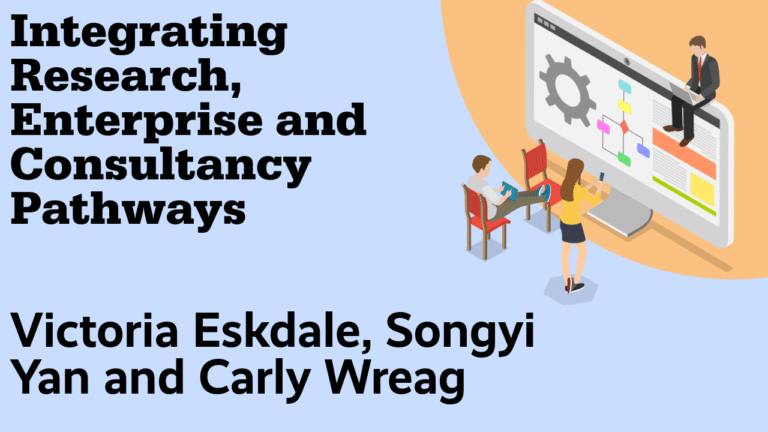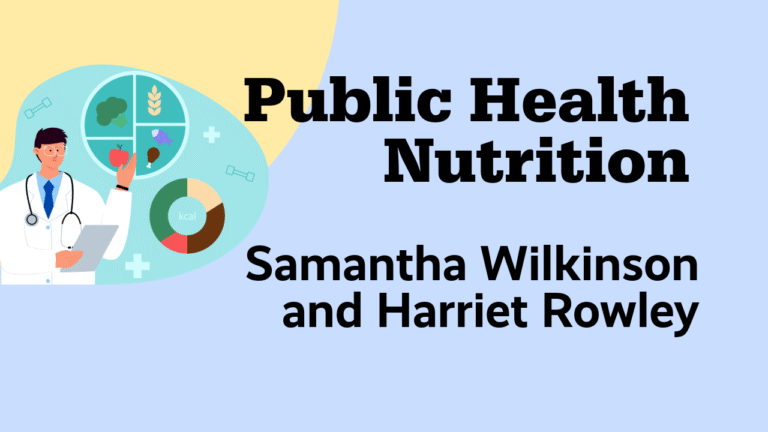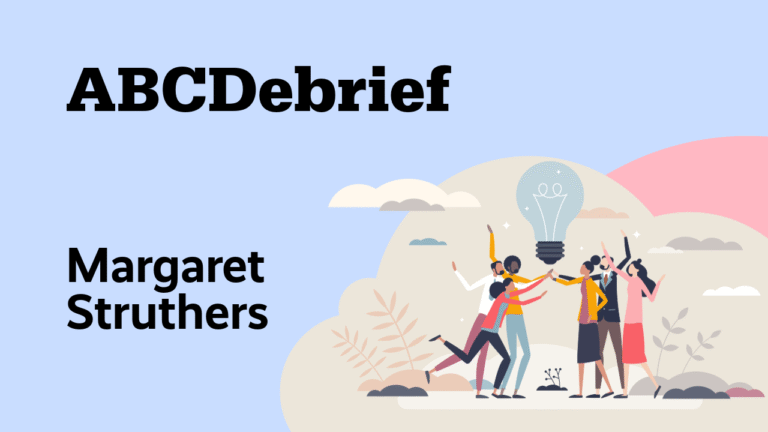You’re the Tutor Today: Using Role Play to build assessment literacy in diverse cohorts
Rahma Jawad – Faculty Foundation Year Lead, Faculty of Science and Engineering – oversee strategic and operational delivery for 1,000+ students across five departments. Faculty Lead for the International College – manage academic quality, assessment alignment, and liaison with senior leadership. Disability Coordinator, School of Computing and Mathematics – coordinate support and ensure inclusive provision for students with disabilities. Over 10 years’ experience in higher education teaching, curriculum design, and student support. Particularly interested in practical ways to help students understand assessment, build confidence through active learning, and feel a sense of belonging in large and diverse cohorts.

“So… are we grading it like actual tutors?”
That was the first thing a student asked when I told them they’d be marking real work.
No slides, no lectures—just anonymised past research reports, the real assessment grid, and one instruction: You’re the tutor today. Mark it. Defend it.
Context
In a large Level 3 Academic Skills module with over 900 students from diverse academic and cultural backgrounds, a persistent challenge is helping learners interpret the rubric, see how the criteria translate into marks, and make meaningful sense of feedback. The module’s summative assessment is a 2000-word research report—a complex task for foundation-level students grappling with academic conventions for the first time. Although a detailed assessment feedback grid is provided, it’s often overlooked or misunderstood by students, who tend to engage with feedback only after receiving their grade.
Drawing inspiration from role play pedagogy and recent sector-wide calls for inclusive, dialogic feedback practices (Jessop, 2023), I designed a simple but powerful intervention: a one-off workshop in which students used role-play to experience the assessment and marking process.
Implementation
In groups of four or five they received anonymised extracts from previous 2,000-word research reports at mixed quality levels, plus the exact feedback grid staff use. To keep talk distributed and perspectives varied, we rotated roles—marker, “criteria lawyer,” devil’s-advocate, timekeeper—while a shared _____ captured annotations, provisional grades and short justifications keyed to the criteria. After each group committed to a judgment, I revealed the original tutor mark and comments and asked a single question: what changed your mind? The design deliberately made standards visible, dialogic and negotiable—core mechanisms for building feedback literacy and evaluative judgement (Carless and Boud, 2018).

What followed was playful but purposeful. Early smiles turned into focused exchanges as students leaned over their A3 sheets, coloured pens in hand. In the dynamic and memorable learning experience of this role play, they grappled with terms like sufficient analysis and developing argument, searching for exact lines in the text that demonstrated them. The discussion moved from description to judgement—an early, tentative “this defines the term” became “the definition works, but the application is weak—this falls in the 50–59 range” (paraphrased). As the session went on, the mood shifted—some laughing, some sighing—when they realised how hard it is to apply standards consistently. One student summed it up: “I thought marking would be quick; now I see it’s a real balancing act” (paraphrased).
I looked for evidence of learning across the themes in the activity. In providing a safe environment to practise communication, problem-solving, teamwork, and negotiation, I saw groups openly challenge each other’s interpretations, defend decisions, and adapt their reasoning. The A3 sheets filled with arrows linking quotes to criteria; some groups colour-coded evidence to match the descriptors. This collaborative process deepened their ability to understand diverse viewpoints and foster empathy, with one noting, “I get why markers might see the same paragraph differently—it depends on what you value most” (paraphrased). Most group grades landed within a band of the original tutor mark; where they didn’t, the rationale showed clear thinking—sometimes overvaluing structure, sometimes underestimating argument quality. In the debrief, students expressed increased confidence and motivation to apply what they’d learned: “Next time, I’ll mark my own draft before I hand it in” (paraphrased). Together, these outcomes—making sound judgements, managing emotions, and planning action—reflect the core of feedback literacy.
The role play achieved exactly what it was designed to do. It turned what might have been a mundane, procedural exercise into a lively, collaborative learning experience. Giving students the charge to take on the tutor role—to interpret the rubric, negotiate grades, and justify their reasoning—shifted the assessment grid from a post-hoc verdict into a tool for thinking. The activity created an inclusive environment in which different perspectives could be voiced, debated, and respected, building not only understanding of the marking process but also confidence in engaging with it. This approach aligns strongly with Advance HE’s Framework for Embedding Inclusive Practice, particularly the Educators+ dimension, which emphasises rebalancing classroom roles to foster belonging, agency, and confidence. Teachers play a key role in facilitating this development by designing curricula, providing guidance, and coaching students to engage meaningfully with feedback (Carless & Boud, 2018).Next iteration, I’ll close the loop with a five-minute self-application task at the end of the session, run a two-week cycle using both low and high exemplars to deepen calibration, and gather ethical data to evidence changes in confidence, language use and grade-band alignment. What stayed with me was a line I heard as students packed up: “I’ll check mine with the grid first this time.” That small shift—from receiving feedback to generating it—was the learning I hoped to see.
References
- Advance HE (2023) Framework for Embedding Inclusive Practice. York: Advance HE.
- Carless, D. and Boud, D. (2018) ‘The development of student feedback literacy: enabling uptake of feedback’, Assessment & Evaluation in Higher Education, 43(8), pp. 1315–1325.
- Jessop, T. (2023) Student agency and engagement: transforming assessment and feedback in higher education. 1st edn. London: Routledge. doi:10.4324/9780429347962.
- Rashid, S. and Qaisar, S. (2017) ‘Role play: A productive teaching strategy to promote critical thinking’, Bulletin of Education and Research, 39(2), pp. 197–213. Available at: https://pu.edu.pk/images/journal/ier/PDF-FILES/15-39_2_17.pdf


